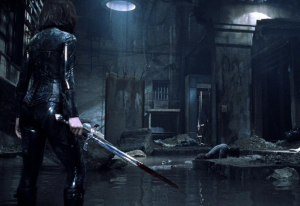Update: Some revisions have been made to the article below to better reflect the 2024 version of the Dungeons & Dragons 5e rules.
Videos by ComicBook.com
With Dungeons & Dragons, some parties think the rules are made to be broken. That goes for in-game character actions as well as player and DM discussions about which rules really apply in any given situation. While you’ll always have your RAW (rules as written) diehards, many groups prefer to be a bit more flexible and lean into the “rule of fun” at their tables. That’s where house rules come in, letting players agree to altered or additional rules for their Dungeons & Dragons games to suit their collective playstyles and goals. The right house rules can add excitement or difficulty to your next campaign, so here’s our list of the best player-created rules to add to your next adventure.
“Take 10” For Skill Checks
This rule from D&D 3.5E isn’t technically a part of the official 5e rules in Dungeons & Dragons. However, many DMs still use it, as it helps simplify gameplay and keep the story moving along.
Basically, with “take 10” players can opt to perform a skill check as if they rolled a flat 10, rather than actually rolling a D20. For many basic knowledge checks in non-combat situations, this will likely result in a pass, and can help the party get important knowledge without the risk of a failed check leading both players and DM to require additional creativity.
Require Proficiency for the Help Action

In D&D 5e, players can use the “help” action to assist other players with a skill check. Typically, any character who isn’t doing something else can jump in and assist, giving the player advantage if they pass the check. However, some DMs prefer to make this a bit more realistic in their home-brew ruleset.
Many tables require that a player character have proficiency in a given skill in order to roll to help. In other words, your character can only help with actions they’re good at, adding a bit more realism to the game. If your Paladin wouldn’t be caught dead with Thieves Tools, they won’t be able to help on a Sleight of Hand check to pick a lock, for instance.
Characters Remember Things… Even if the Player Doesn’t
This is one of those house rules that keeps things moving along, and DMs should consider adapting it the next time their party gets stuck. While some DMs will insist that players keep perfect notes, this house rule suggests that players can get a helpful reminder if they’re forgetting something their character would definitely remember.
Let’s say I forget the name of an NPC we meet who held the secret to uncovering the identity of my character’s long-lost dad. Given that my character would likely never forget such important information tied to her key motives for taking on the adventure, the DM would remind me of this info since my character would certainly know it. This is a helpful way to avoid the party missing out on important knowledge due to poor notetaking or forgetful players at the table.
Sacrifice Shield to Lessen the Blow of a Crit

This house rule is likely a carryover for TTRPG fans familiar with Pathfinder, which offered this ability as a feat. While this isn’t officially part of the 5e ruleset, some tables are happy to let players sacrifice their shields to reduce damage from a crit.
The way this works is that a character can “break” their shield when taking damage from a critical hit. The damage will then be reduced to a regular hit, but the shield is broken. This only benefits players with characters that carry a shield in the first place, but it’s a really beneficial house rule for melee combatants to help avoid rolling for a death saving throw.
Death Saves as Private Rolls
One of the biggest challenges in D&D is avoiding metagaming. This house rule makes death saving throws a private action so only the DM and player whose character is at risk know how close they are to death. While it certainly makes it harder to avoid a TPK (total party kill), this house rule adds realism to the combat experience.
When players at the table know that a character has failed 2/3 of their death saves, they’re more likely to rush to that player’s aid even if it’s not what their character would actually do during an intense combat. This rule ensures that players are as in the dark about their ally’s status as their characters would be during an intense combat where their attention is surely elsewhere.
Beef Up Crits with One Max Damage Die

According to the rules as written, a critical hit in D&D 5e lets players roll twice as many damage dice. However, this can lead to some pretty underwhelming crits for players who aren’t so lucky on the dice rolls. Rolling 2d8 instead of 1d8 doesn’t make much of a difference when you roll a 1 on both dice, for instance. That’s why many tables have a house rule that makes crits a bit more exciting.
Basically, the house rule goes like this. If players roll a Nat 20, they automatically get one max damage die. In other words, if the weapon deals 1d8, one of their “double” dice rolls is an automatic 8. The player still rolls the other dice for normal damage to add up to the total for their critical hit. Many Dungeons & Dragons fans feel this house rule helps keep those Nat 20s exciting, no matter how badly your dice are behaving in a given session.
Swapping Hero Points for Inspiration
Yet another house rule that actually has its roots in the Pathfinder system is mixing up how Inspiration works. In the official D&D 5e rules, inspiration is earned at the DM’s discretion based on players’ actions, such as a great roleplay moment or insight. Players that have an inspiration point can use it to roll with advantage on one roll, which they need to declare before rolling any dice. While the 2024 rules update did introduce a few more ways to get Hero Points, including once per day for Human characters and a special feat for level 10+ Champions, they’re still fairly tricky to come by. Because inspiration is given out sporadically, players often forget to use it in critical moments, which is where this house rule comes in.
In Pathfinder’s first edition rules, you get Hero Points instead of inspiration. They work similarly, with a few key differences. First, every player gets 1 Hero Point at the start of any session. It expires at the end of the session unused, so players typically know they have exactly 1 Hero Point each session. This helps everyone keep track of the points better, meaning they’re more likely to actually use them. In the house rule, the Hero Points will then function more or less like inspiration, letting players roll with advantage.








